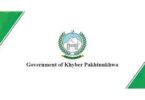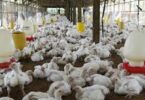Dr Sumera Shams
PESHAWAR: Economic growth without investment in human development is unsustainable and unethical. (Amartya Sen)
The Pakistan Tehreek-e-Insaf pledged to make investment in human development of the country to alleviate poverty, generate employment opportunities and improve the living standard of people, in their mandate. Human development means a system primarily crafted by the state to invest taxpayers money on the people. When there is accountability, rule of law and strong work ethics ensured through all the pillars of governance like bureaucracy and the justice system, the outcome is the empowerment of common people. By providing better healthcare, housing, transport, employment and educational facilities to people one can expect the country to excel.
The former prime Minister of Pakistan, Imran Khan resolved to ensure human development and good governance in the country.
The PTI government translated this vision into reality in the Khyber Pakhtunkhwa province from 2013-18; gradually expanding its social and human development programs to entire Pakistan after forming a government at center.
There is no denying the fact that the nations who achieved height of progress and development are due to investment in human resources. The PTI government is committed to invest in the health, education and social sector with the introduction of new technologies, quality services, accessibility to opportunities and development of human resources. Some of the programs pertaining to health, education and social sector.
The PTI’s Government envisages to ensure Universal Health Coverage (UHC) for all Pakistani population. As a first step the Government, under its Sehat Sahulat Program, has launched Universal indoor Health Coverage (UiHC) in 2015 for the provision of indoor/ hospitalization services to its families.
Sehat Sahulat Program is a milestone towards social welfare reforms; ensuring that the identified under-privileged citizens across the country get access to their entitled medical health care in a swift and dignified manner without any financial obligations. Khyber Pakhtunkhwa, led by the PTI government took lead when it launched the micro-health insurance scheme in 2020 and started the distribution of Sehat Sahulat Plus cards to the eligible 7.2 million families. All the permanent residents of Khyber Pakhtunkhwa registered with NADRA are covered under the program. Patients can get treated at any empanelled hospital anywhere in the country.
In December 2021, the former prime Minister Imran Khan launched the Naya Pakistan Card Initiative, bringing mega welfare programmes of the Pakistan Tehreek-i-Insaf (PTI) government covering health, education, food and agriculture sectors under one umbrella. With the launch of Naya Pakistan Card, which covers Ehsaas Ration Programme based on a food subsidy package for low-income families, Kisan Card, Sehat Card and scholarships for students, beneficiaries of various initiatives can avail all services on the same card.
To implement various initiatives for the socio-economic development of youth. Kamyab Jawan Programme had a vast array of projects and initiatives in entrepreneurship, skills training and engagement. The PTI government while in ruling had approved loans worth Rs39 billion under Kamyab Jawan Programme aimed at economically empowering the youth through providing soft loans. The loans provided if intact by current government, would benefit around 25,700 youths who had qualified for the soft loans scheme. The government has allocated Rs100 billion for the disbursement of soft loans under the Kamyab Jawan Programme and Rs 3 to 4 billion were being distributed per month to some 3,000 young entrepreneurs, which would be increased to disburse Rs8 to 10 billion gradually.
Interest-free loans of up to Rs500,000 have been given to the youth under Kamyab Pakistan Programme, whereas, under Kamyab Jawan Programme, over 2,000 tractors worth Rs2.5 billion have been handed over to the youth working in the agriculture sector with a view to facilitate the young agricultural entrepreneurs for boosting the sector.
Under the “Kamyab Jawan Skills for All” initiative, 60,000 scholarships were offered in the third batch, while 100,000 scholarships had already been provided.
Ehsaas was the biggest and boldest programme ever launched in Pakistan to uplift marginalized people. It was a unique programme as it addresses state capture, social protection, livelihoods and human capital development. Ehsaas was an umbrella initiative of over 288 policies and programs, and the list is growing.
A new division; Poverty Alleviation & Social Safety Division had been created to implement Ehsaas. As Ehsaas Kafaalat programme had successfully been rolled out, an unconditional cash transfer programme that includes cash stipends of Rs. 2000 monthly across all districts of the country driving financial and digital inclusion for around 8 million women.
The Ehsaas Undergraduate Scholarship programme was launched in November 2019 and 50,000 need cum merit based scholarships are awarded to deserving students every year. The programme was expected to award 200,000 scholarships over four years covering 100% of the tuition fee and a monthly living stipend, through Higher Education Commission as an implementing partner.
To eradicate Pakistan’s high rates of 40.2% stunting, 28.9% underweight and 17.7% wasting Ehsaas Nashonuma; a health and nutrition conditional cash transfer programme had been launched to address stunting in children under 23 months of age.
As per UNICEF data Pakistan has the world’s second-highest number of out-of-school children (OOSC) with an estimated 22.8 million children aged 5-16 not attending school. Ehsaas Education Stipends (School Stipends) had been rolled out to support the education of 10 million children in all 160 districts.
Ehsaas Langars was meant to serve meals to the poorest and most vulnerable segments of the society, especially daily wage laborers. Panagahs (shelter homes) program focuses on providing free food and accommodation to the poor and homeless people helping them save their hard-earned money which is drained off by the high expenses of lodging and food.
Launched on April 1, 2020, the Ehsaas Emergency Cash programme under its first phase provided Rs. 12,000 each to 15 million deserving families affected by COVID-19 lockdowns. In 2021, under the second phase of the programme, 12 million deserving families are being disbursed Ehsaas Emergency Cash grant. Ehsaas Emergency Cash programme was ranked third in terms of percentage of population globally and fourth worldwide in terms of the number of people covered by the World Bank.
To reduce the impact of inflation for the marginalized segments of society, a subsidy of Rs. 1,000 a month had been initiated under Ehsaas Rashan Riayat programme.
As a measure of comprehensive socio-economic uplift the PTI government initiated Naya Pakistan Housing Programme to deliver five million housing units with allied amenities to all citizens, especially focusing on the financially underserved and middle-income communities’.In Khyber Pakhtunkhwa, the PTI government passed a number of important legislations to bring productive reforms in the education sector. Free and Compulsory Primary Secondary Education Act 2017 has been enacted in the true spirit of article 25(A) of the constitution of Pakistan, for Free and Compulsory Education to all children of age 5 to 16. The KP Private Schools Regulatory Authority Act 2017, The Khyber Pakhtunkhwa Educational Monitoring Authority Act, 2019, and The Khyber Pakhtunkhwa School Bags (Limitation of Weight) Act, 2020, are some of the landmark legislations in this regard.
To address the access component in the education sector, the PTI government prioritized establishment and up-gradation of new Schools and since 2013 thousands of schools have been newly established or upgraded throughout the entire Khyber Pakhtunkhwa.
Through the establishment of the Independent Monitoring Unit in 2014 a comprehensive system of monitoring and data collection was introduced to check the teacher student attendance, missing facilities and other indicators for quality education.
During the PTI government in Khyber Pakhtunkhwa, in government schools, a significant increase in the enrollment has been observed. The government has paid a special emphasis on female education, thus for inclusive education and to reduce gender disparity, the Girls Stipend Programme was restarted in 2013. Designed along the lines of the Ehsaas stipend policy, a higher amount is allocated for girls as compared to boys.
To address the challenge of the 22.5 million out-of-school children, the PTI government devised key actions related to school infrastructure, finance, the formulation of innovative solutions, the promotion of non-formal programs and utilization of technology. On September 01, 2021 the government launched Second shifts at schools in the entire Khyber Pakhtunkhwa.
Since 2013, the PTI government has paid special focus on education and its budget had been going upward and during the PTI government in Khyber Pakhtunkhwa from 2013 to 2018, the overall increase in the five years in education budget had been 113.84%. In the fiscal year 2021-22 the federal government of PTI has allocated Rs. 28 billion budget to the education sector, which is 500 percent more than the budget allocated by the previous government.
With an aim to unite the children of the country under the umbrella of a single curriculum the government has recently introduced the Single National Curriculum (SNC). A uniform national education system was the need of the hour because Pakistan has a variety of educational systems which further class differences and seems to be a big hurdle in bringing unity and harmony among the nation.
Establishment of new higher education institutions including University of Hafizabad, University of Chakwal, Sialkot University of Applied Engineering and Technology and Pak-Austria Fachhochschule Institute in Haripur to be mentioned.
Now due to political uncertainty, many of these programs are under threat to be closed down, which would be directly affecting the social livelihood of the public and indirectly the economic growth of Pakistan.






